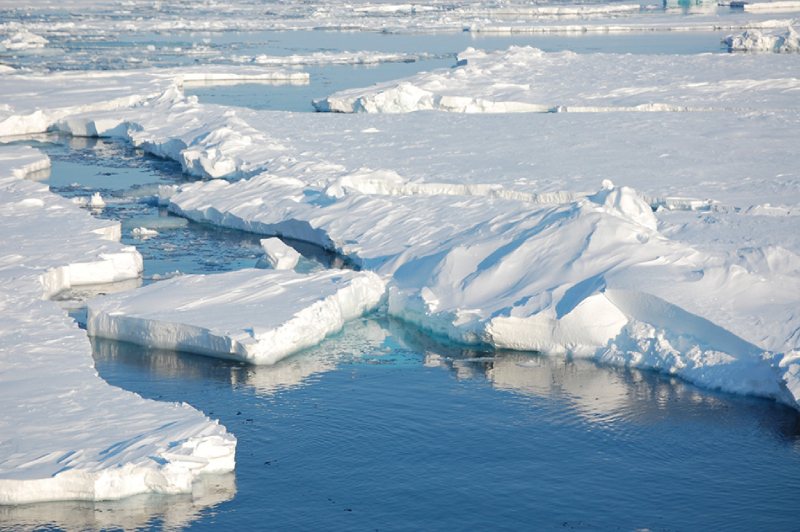Within the next ten years, emissions from burning fossil fuels might cause summertime in the Arctic to have almost no sea ice, according to a research.
Scientists predicted that throughout the summer, this will change the distinct environment—which is home to walruses, seals, and polar bears—from a “white Arctic” to a “blue Arctic.” As “ice free” is defined as fewer than 1 million square kilometers, the Arctic would primarily consist of water in this scenario.
The first day without ice in the Arctic may happen more than ten years sooner than previously predicted, according to research that was published in the journal Nature Reviews Earth & Environment.
According to the authors, Septembers without ice should be predictable by 2035 to 2067. The precise year within that time frame depends on how swiftly global fossil fuel consumption declines.
There’s a chance that, in a high-emission scenario, May and January will be ice-free by the end of the century, and in a low-emission scenario, August and October.
“This would transform the Arctic into a completely different environment, from a white summer Arctic to a blue Arctic, So even if ice-free conditions are unavoidable, we still need to keep our emissions as low as possible to avoid prolonged ice-free conditions.” stated Alexandra Jahn, lead author of the study and associate professor of meteorology and oceanic sciences at the University of Colorado Boulder.
However, she added, there may be a way to resolve this problem.
Sea ice will return within ten years, according to Jahn,“Unlike the ice sheet in Greenland that took thousands of years to build, even if we melt all the Arctic sea ice, if we can then figure out how to take CO2 back out of the atmosphere in the future to reverse warming.”
As their habitat melts, not only will the wildlife of the Arctic suffer, but coastal residents will too. Since sea ice lessens the impact of ocean waves on the coast, larger, stronger waves will result in greater erosion if sea ice is lost.
